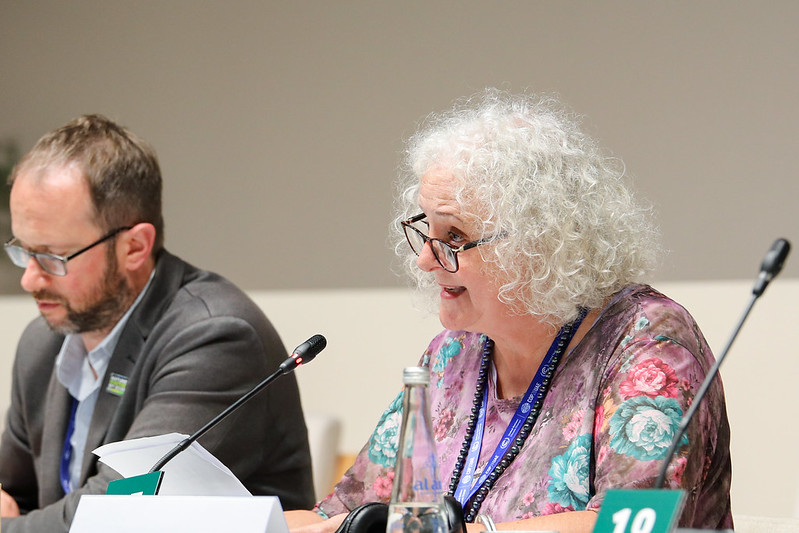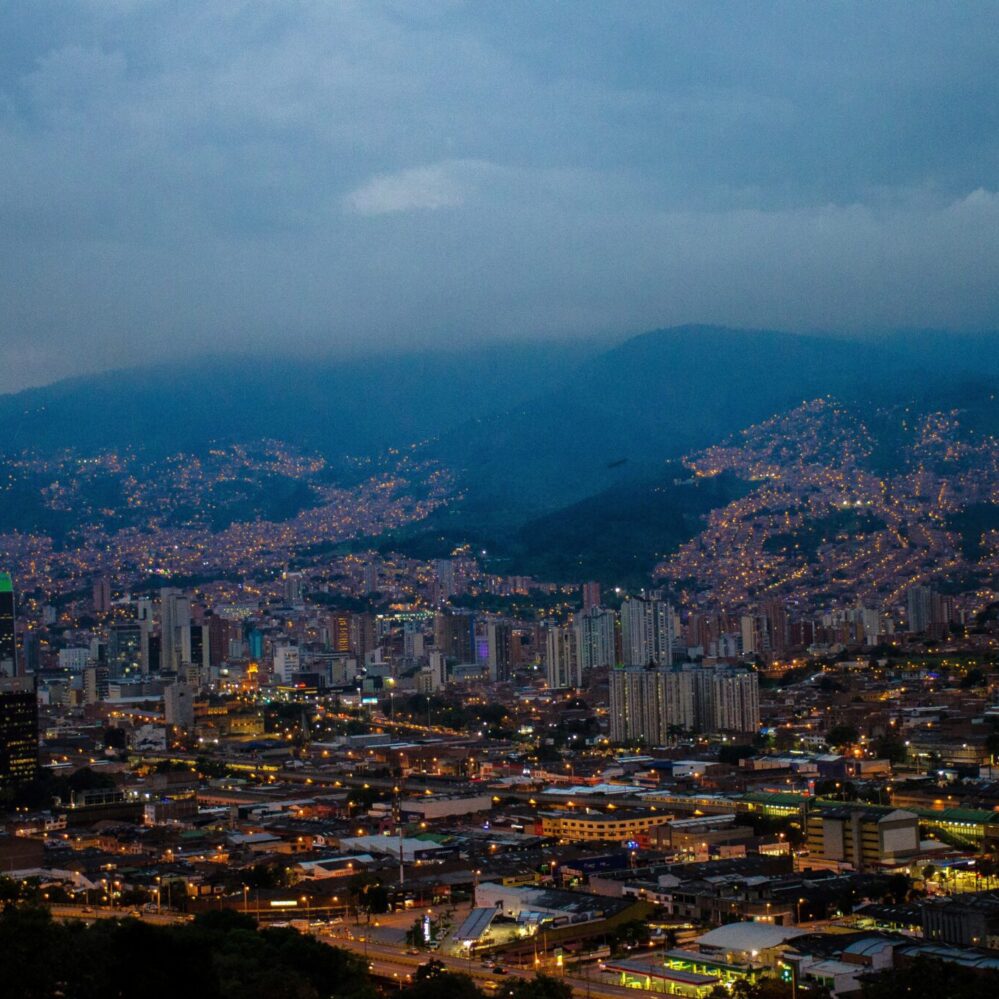Check out ICLEI’s run-down of all the outcomes of COP29 for cities and regions here.
The 2024 UN Climate Change Conference (COP29) in Baku, Azerbaijan, comes at a challenging time, with political upheaval, ongoing wars on multiple fronts, recent elections in major democracies and alarming UN reports showing slow progress on climate goals. At the same time, cities and regions come to COP29 with a goal to build on the successes of the last COP. Cities and regions saw huge wins at COP28, both in the negotiated outcomes and in the process of achieving those outcomes. These outcomes – the UAE Consensus, the First Global Stocktake Outcomes, UAE Framework for Climate Resilience, and direct access to loss and damage funds emphasized multilevel action and the role of local and subnational governments in driving global climate efforts. Key initiatives such as the launch of the Coalition for High Ambition Multilevel Partnership (CHAMP) for Climate Action, and the first Local Climate Action Summit marked major progress in multilevel cooperation.
Bold agreements are needed to ensure we can still achieve the SDGs, the Paris Agreement, and effective climate adaptation. The period until COP30 is crucial, with new Nationally Determined Contributions (NDCs) due in 2025. Seventy-four nations have already endorsed the CHAMP initiative, pledging to involve local and other subnational governments in their revised climate goals. Local and regional government leaders will be at COP29 to bring these important messages forward.
“In Sharm el-Sheikh, we had the SURGe initiative, a holistic approach to feed urbanization into climate action; in Dubai, the CHAMP initiative –a political commitment for multilevel NDCs by 2025. In Baku, we hope to bridge these efforts and introduce financial resources and mechanisms to implement these technical and political commitments,” says Yunus Arikan, ICLEI Director of Global Advocacy and the LGMA Focal Point to the UNFCCC. He adds, “At COP29, ICLEI will continue to lead advocacy for enhanced multilevel action and integrating sustainable urbanization into climate emergency action.”
**Interested in following cities and regions at COP29? Sign up for our daily updates**
How do cities and regions participate at COP?
For over twenty years, the Local Governments and Municipal Authorities (LGMA) Constituency has been a driving force in bringing the voices of local governments to the forefront of global climate discussions. In the realm of international climate negotiations under the UNFCCC, ‘constituencies’ represent key groups from various sectors of society, ensuring a multifaceted perspective in the discourse. These constituencies include a diverse array of stakeholders, ranging from non-governmental organizations to business entities and indigenous populations.
The LGMA Constituency plays a critical role in this framework. It advocates for the interests and perspectives of subnational entities like cities, towns, and regional governments. As a voice for local governments, the LGMA highlights the unique challenges and innovative solutions these bodies offer in addressing climate change. The LGMA ensures that the strategies and needs of local authorities are integrated into global climate policies, a crucial aspect considering the increasing importance of urban areas in both contributing to and solving environmental challenges. ICLEI serves as the official focal point of the LMGA to the UNFCCC.
ICLEI holds a special role in this space, acting as the LGMA Focal Point. Through concerted leadership within the LGMA community in the past 30 years, we have secured wins in multiple Climate COPs outcomes, including specific references to multilevel action and urbanization throughout the negotiated outcomes, voluntary outcomes, official agendas and stated priorities of the Climate COPs since our last strategic vision in 2021.
“We are proud to lead the active engagement of the LGMA Constituency throughout the year and to have an impressive position endorsement, bridging all three Rio Conventions on climate-nature-land and reaching out to new partners through the Multilevel Action & Urbanization Pavilion, demonstrating that ICLEI is a strong powerhouse for ambitious, holistic, and multilevel climate action and advocacy,” states Yunus Arikan.
This year the LGMA has mobilized more than 100 elected leaders to attend COP29, with more than 500 delegates total representing the Constituency.
The messages our local and regional governments are bringing to COP29
ICLEI’s messages for COP29 celebrate the action and impact of cities, towns and regions but demand urgency and action from the Parties.
- Local and regional governments that are a part of the ICLEI network are united in a mission of sustainability. Cities, towns and regions in the ICLEI Network are at COP29 to demonstrate their critical role to achieving their own, national and global ambitious climate action goals.
- We demand effective multilevel governance and multilevel action. As set out in paragraph 161 of the COP28 UAE Consensus outcome, national governments should commit to include multilevel governance and multilevel action to raise the level of ambition in their next round of NDCs.
- We need an urgent fossil-fuel phase out supported by a comprehensive, rapid and just transition to sustainability, for all. A just and equitable transition is a requirement of achieving sustainable development. The COP28 outcomes called on Parties to support a “transitioning away from fossil fuels in energy systems, in a just, orderly and equitable manner, accelerating action in this critical decade.” This historic call ensures that a fossil fuel phase-out must be combined with a just transition. Cities, towns and regions are the critical ground zero for the just transition and provide ample opportunity to achieve this, including through the implementation of 100% renewables at the local level.
- Our biggest challenges are intertwined, so our sustainability solutions must be integrated. To build on the COP28 Joint Statement on Climate, Nature, and People and align with the Kunming-Montreal Global Biodiversity Framework and the outcomes of the Biodiversity COP16, we urge Parties to strengthen synergies across climate mitigation, adaptation, nature-based solutions, food security, biodiversity, land restoration, and culture-based action to ensure inclusive progress on climate and the SDGs.
- We need more substantial finance for climate, biodiversity and other sustainable development priorities to flow faster and with direct access for local and regional governments. We urge parties to deliver an ambitious New Collective Quantified Goal on climate finance that enables a just, equitable and a well-funded transition across all levels of government including direct access for local and other subnational governments.
- We need researchers, innovators, and practitioners to work together more deeply and effectively to solve our greatest sustainability challenges. ICLEI, a dedicated supporter and contributor to the IPCC Special Report on Cities process since its inception, views COP29 as a pivotal moment for cities to champion science-informed urban climate action.
The LGMA Constituency’s position for COP29
The LGMA Constituency has developed a joint position for use in negotiations at COP29. The position is made up of three clear asks and is supported by guidance documents for the Parties that translate the asks into “outcomes language.” We encourage ICLEI’s delegates to take up this position with their national delegations and endorse the position ahead of the Urbanization Ministerial on 20 November.
The three asks are:
- Urging Parties to COP29 to accelerate inclusive, multilevel, and gender-responsive climate action by incorporating local and subnational governments into new Nationally Determined Contributions (NDCs). This requires delivering on the UAE Consensus commitments without reducing ambition, including a rapid phase-out of fossil fuels and fostering multilevel cooperation. LGMA emphasizes the need to involve local governments actively in setting ambitious NDC and National Adaptation Plans (NAPs) through initiatives like CHAMP, Town Hall COPs, and the Marrakesh Partnership for Global Climate Action. They also encourage all Parties to join CHAMP and to ensure that national climate strategies are inclusive of local leaders, with engagement points at events like the Urban Ministerial Meeting and CHAMP High-Level Dialogues. Additionally, LGMA calls for integrating local governments in climate resilience strategies, the Loss and Damage Fund guidelines, and the Global Climate Action Portal for transparent monitoring and reporting.
- Financing sustainable urbanization and climate action at all government levels. They advocate for an ambitious New Collective Quantified Goal on climate finance that provides equitable funding access across government levels, prioritizes grants over loans to avoid debt burdens on local governments, and includes direct funding access. Recognizing sustainable urbanization as a non-market approach in Article 6.8 of the Paris Agreement, LGMA encourages COP29 to focus on adaptation, mitigation, and clean energy development to support a just transition.
- Aligning the climate, nature, pollution, and sustainable development agendas by building on the COP28 Joint Statement on Climate, Nature, and People. They call for stronger integration of biodiversity goals through frameworks like the Kunming-Montreal Global Biodiversity Framework, promoting synergies among climate mitigation, resilience, food security, land degradation, biodiversity, and health. This alignment aims to ensure that no one is left behind in the global fight against climate change. To enhance these efforts, LGMA supports the formal inclusion of local and subnational voices in UN agendas, as outlined in the revised Pact for the Future. Comprehensive guidance from LGMA on multilevel governance, climate finance, and integrated outcomes is available to support these goals at COP29.
**Interested in following cities and regions at COP29? Sign up for our daily updates**
From biodiversity to climate: Biodiversity COP16 outcomes
Local and regional government advocates are turning their attention from the Biodiversity COP16 that just concluded in Cali, Colombia. At COP16, a draft decision on Biodiversity and Climate was adopted, emphasizing the importance of aligning biodiversity and climate actions. This decision calls on Parties to prioritize ecosystems that are vital for the carbon cycle and climate adaptation, and to coordinate national planning processes across environmental agreements, including the Paris Agreement. In a noteworthy step, the decision urges COP16’s President to collaborate with the Presidents of Climate COP29 and COP30, fostering stronger multilateral coordination on biodiversity and climate change.
COP16 also marked historic recognition for subnational governments, as they actively contributed to global discussions at the 8th Summit for Subnational Governments & Cities. Their expanded role is expected to influence future engagements, with a detailed report on these contributions set for early 2025. This meeting reinforced the role of local governments in the Global Biodiversity Framework (GBF) implementation, highlighting their influence in several key decisions on biodiversity monitoring, health, and cross-sector mainstreaming.
ICLEI and its partners are building on this momentum, preparing to bring local government leadership to COP29 and beyond. This sustained engagement aims to showcase local solutions for the interconnected biodiversity and climate crises, continuing through Climate COP30 in Brazil, CBD COP17 in Armenia, and beyond.
One year after CHAMP, the push for stronger NDCs in 2025
ICLEI is working with a wide range of partners to support endorsers of the COP28 Coalition for High Ambition Multilevel Partnerships (CHAMP) for Climate Action and are excited to bring 2024’s successes to COP29. Seventy-four nations have now endorsed the pledge, which commits endorsing countries to enhance cooperation with their local, regional and other subnational governments –including cities, towns, states and regions– to collectively pursue efforts to limit the global temperature rise.
Key events like Daring Cities 2024 and the ICLEI World Congress 2024 helped to connect subnational climate efforts and encourage collaboration with governments supporting CHAMP, building momentum for the future COPs in Baku and Belém. Deriving from these events –and spearheaded by ICLEI Global Executive Committee leaders, Katja Dörner, Mayor of Bonn, Germany, and chair of the Climate Action Governance Portfolio; Axel Grael, Mayor of Niterói, Brazil, and chair of the Climate Action Support Portfolio; and Barbara Buffaloe, Mayor of Columbia, Missouri, USA, who serves on the ICLEI Regional Executive Committee for North America– national associations of cities in Germany, Brazil, and the United States adopted resolutions supporting CHAMP. The resolutions also propose the Town Hall COPs initiative as a new model for local-global action and advocacy to secure strong, multilevel NDCs on the road to COP29 and COP30.
Our message is clear: as nations will recalibrate their climate goals, they must realize the indispensable role of subnational governments. With endorsements from 70+ countries, CHAMP is not merely an initiative; it’s a powerful movement bridging the voices of cities and regions to reignite global climate ambitions.
Most recently, we were delighted to welcome Finland to the list of endorsers of CHAMP. The advocacy effort was spearheaded by ICLEI First Vice President Minna Arve, Mayor of the City of Turku.
**Interested in following cities and regions at COP29? Sign up for our daily updates**
You can follow all of ICLEI’s announcements and interventions at COP29 here.





